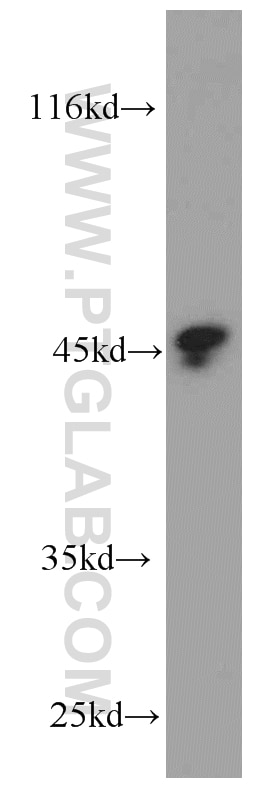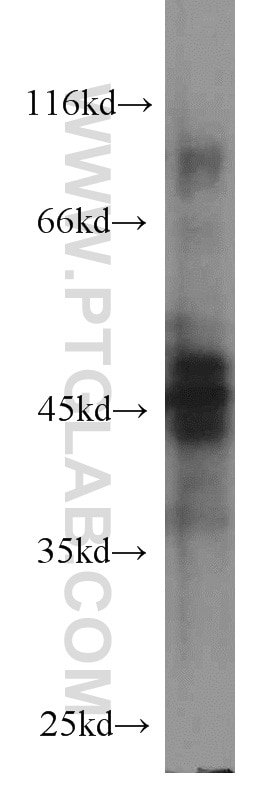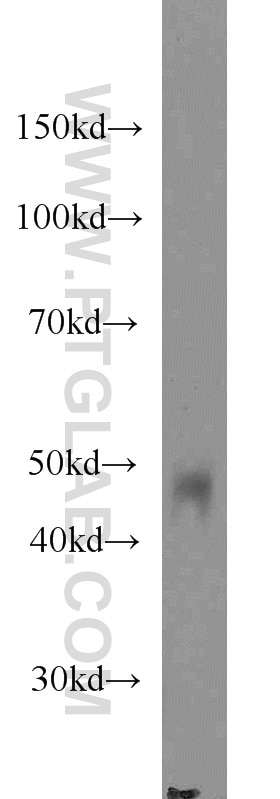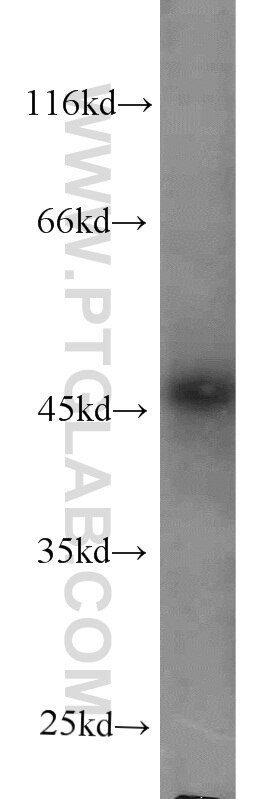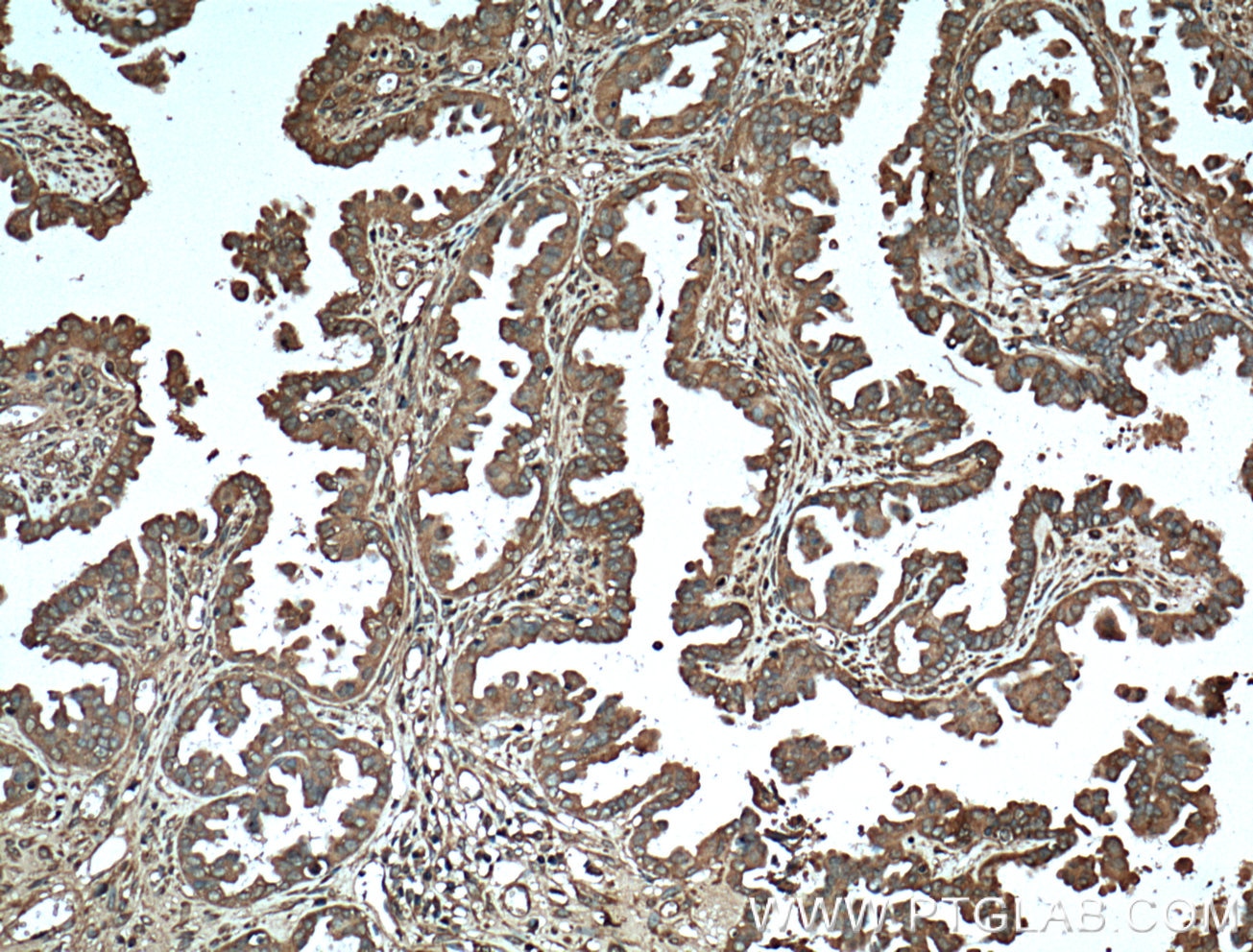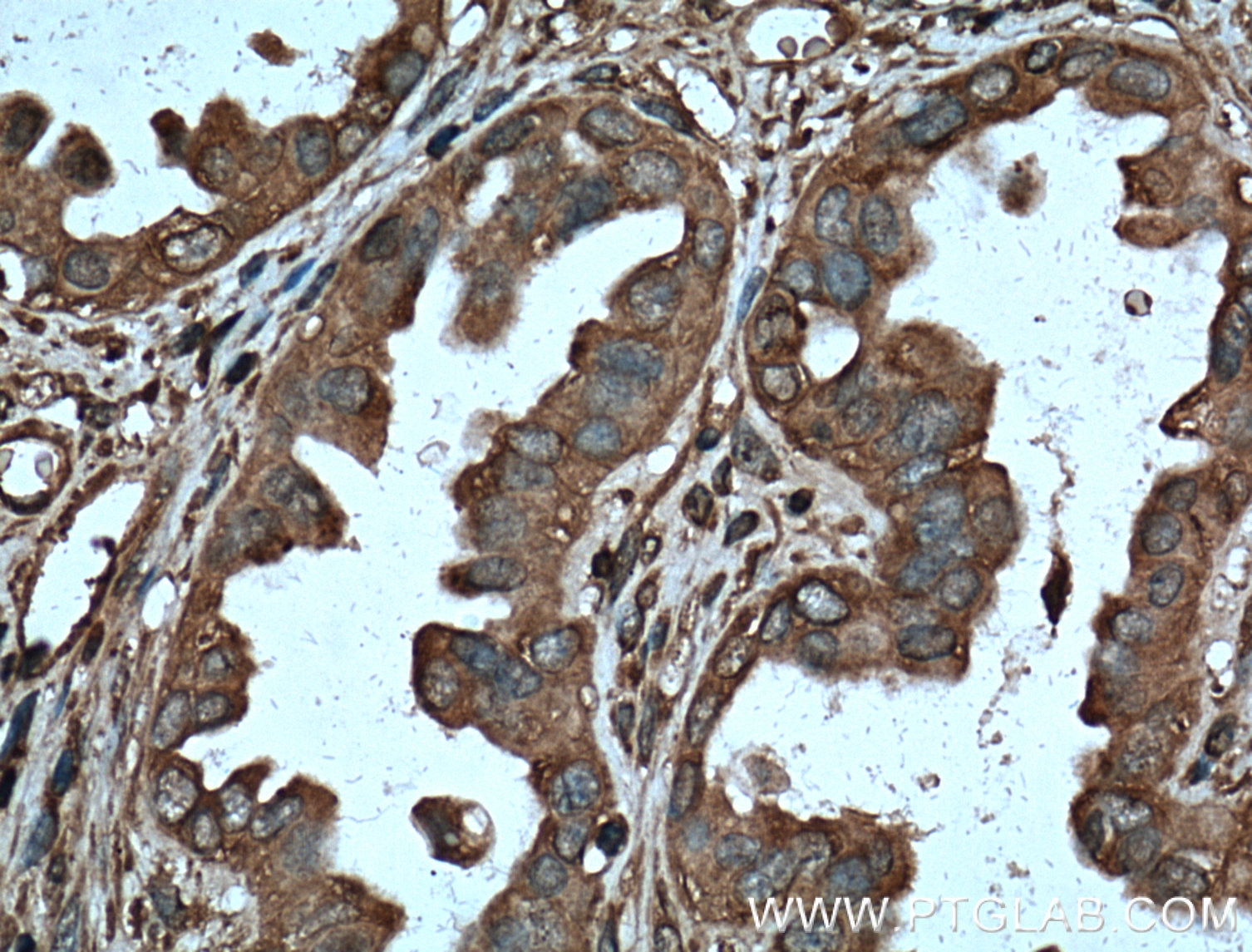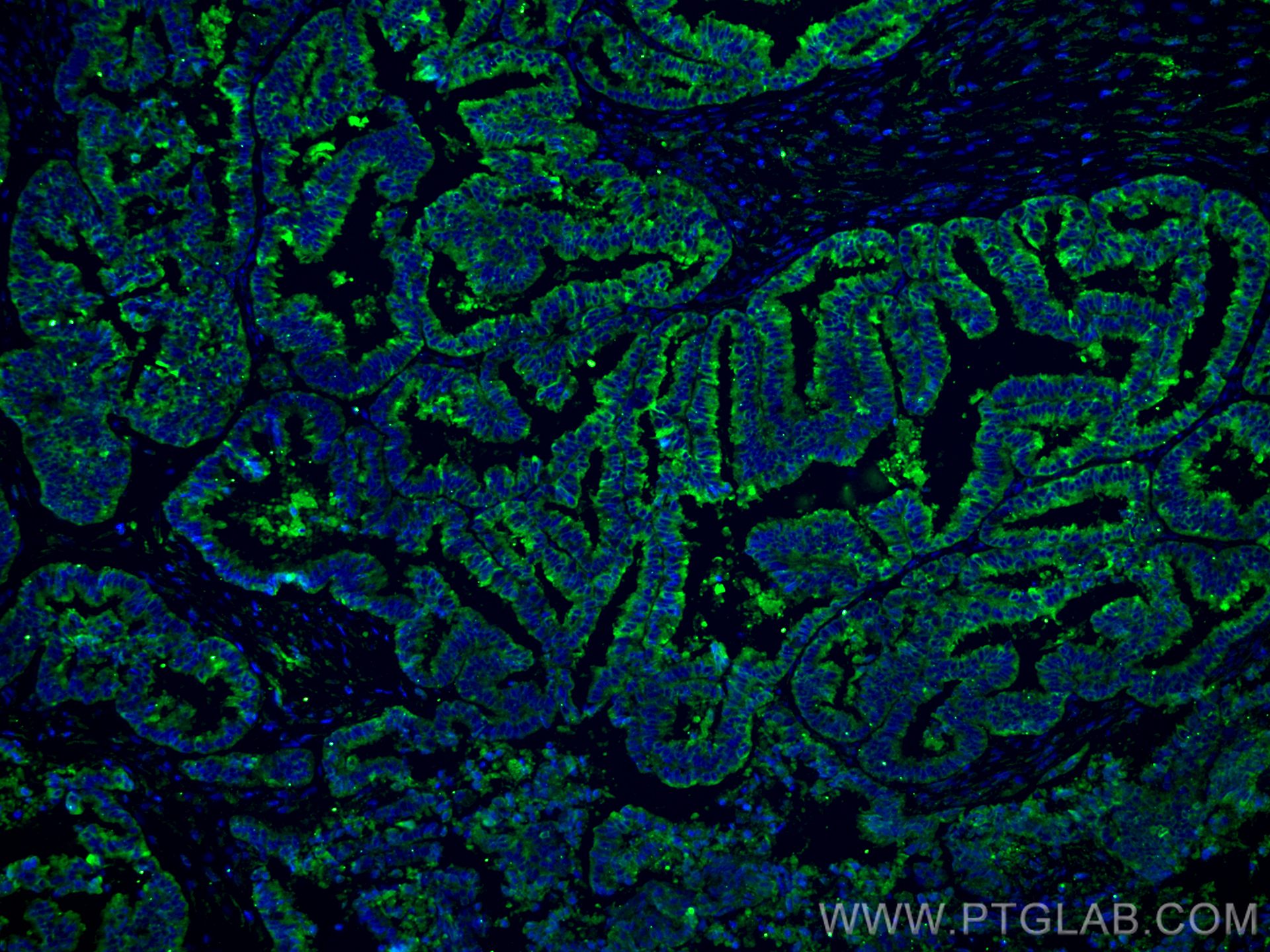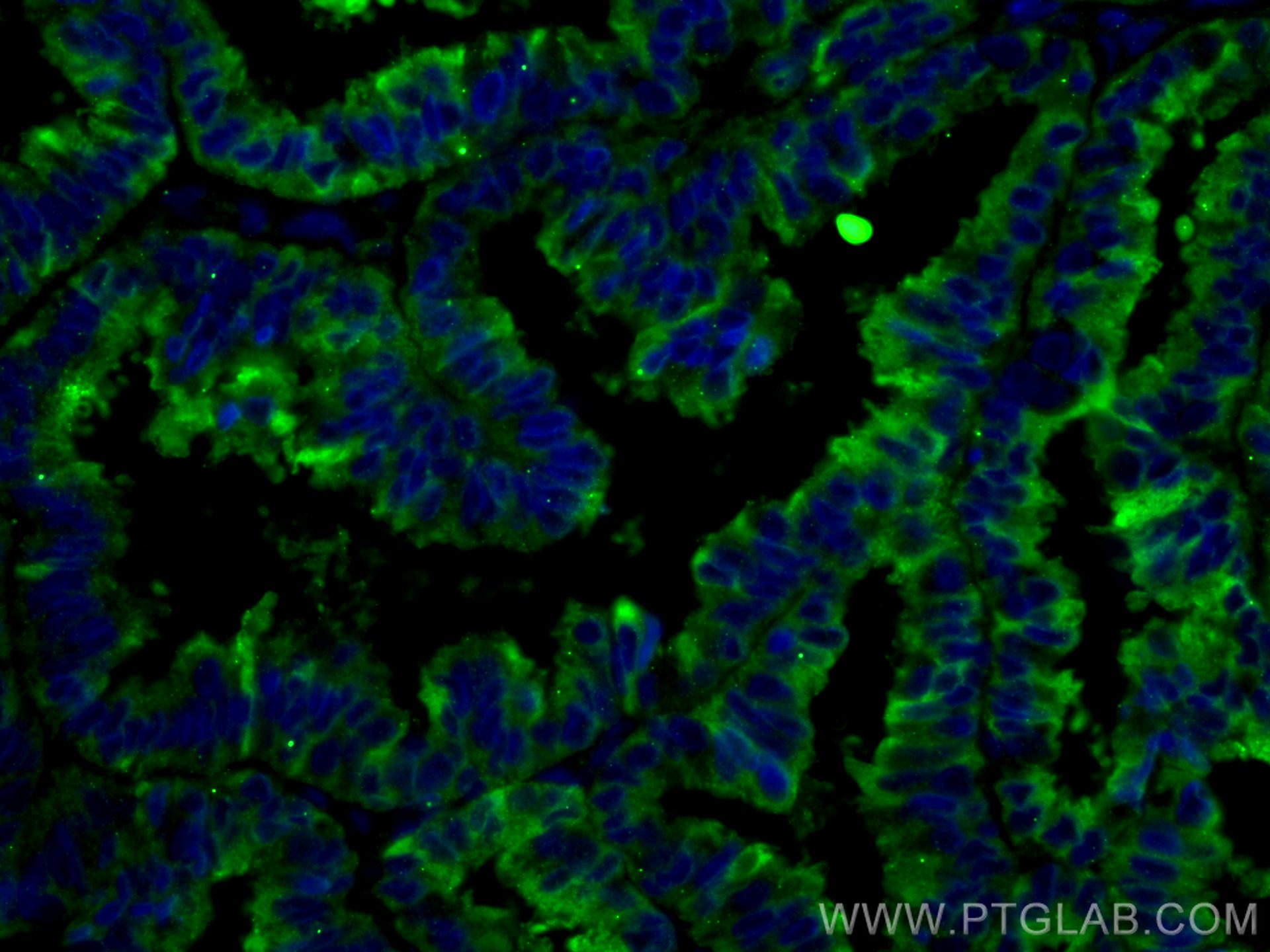Anticorps Monoclonal anti-Protein C inhibitor
Protein C inhibitor Monoclonal Antibody for IF, IHC, WB, ELISA
Hôte / Isotype
Mouse / IgG2a
Réactivité testée
Humain
Applications
WB, IHC, IF, ELISA
Conjugaison
Non conjugué
CloneNo.
2H6G2
N° de cat : 66030-1-Ig
Synonymes
Galerie de données de validation
Applications testées
| Résultats positifs en WB | testicule humain, tissu |
| Résultats positifs en IHC | tissu de tumeur ovarienne humain il est suggéré de démasquer l'antigène avec un tampon de TE buffer pH 9.0; (*) À défaut, 'le démasquage de l'antigène peut être 'effectué avec un tampon citrate pH 6,0. |
| Résultats positifs en IF | tissu de tumeur ovarienne humain, |
Dilution recommandée
| Application | Dilution |
|---|---|
| Western Blot (WB) | WB : 1:500-1:2000 |
| Immunohistochimie (IHC) | IHC : 1:50-1:500 |
| Immunofluorescence (IF) | IF : 1:200-1:800 |
| It is recommended that this reagent should be titrated in each testing system to obtain optimal results. | |
| Sample-dependent, check data in validation data gallery | |
Informations sur le produit
66030-1-Ig cible Protein C inhibitor dans les applications de WB, IHC, IF, ELISA et montre une réactivité avec des échantillons Humain
| Réactivité | Humain |
| Hôte / Isotype | Mouse / IgG2a |
| Clonalité | Monoclonal |
| Type | Anticorps |
| Immunogène | Protein C inhibitor Protéine recombinante Ag18094 |
| Nom complet | serpin peptidase inhibitor, clade A (alpha-1 antiproteinase, antitrypsin), member 5 |
| Masse moléculaire calculée | 46 kDa |
| Poids moléculaire observé | 46 kDa |
| Numéro d’acquisition GenBank | BC008915 |
| Symbole du gène | SERPINA5 |
| Identification du gène (NCBI) | 5104 |
| Conjugaison | Non conjugué |
| Forme | Liquide |
| Méthode de purification | Purification par protéine A |
| Tampon de stockage | PBS avec azoture de sodium à 0,02 % et glycérol à 50 % pH 7,3 |
| Conditions de stockage | Stocker à -20°C. Stable pendant un an après l'expédition. L'aliquotage n'est pas nécessaire pour le stockage à -20oC Les 20ul contiennent 0,1% de BSA. |
Informations générales
SERPINA5 (also called Protein C Inhibitor, PCI ) is a serpin type of serine protease inhibitor that is found in many tissues and fluids in human, including blood plasma, seminal plasma and urine. PCI found in blood originates from the liver and is capable of inhibiting several serine proteases involved in the regulation of coagulation and fibrinolysis, including activated protein C, thrombin, factor Xa, various kallikreins and plasminogen activators. PCI has been found to have antimicrobial and antitumor properties and thus appears to be a multi-functional protein.
Protocole
| Product Specific Protocols | |
|---|---|
| WB protocol for Protein C inhibitor antibody 66030-1-Ig | Download protocol |
| IHC protocol for Protein C inhibitor antibody 66030-1-Ig | Download protocol |
| IF protocol for Protein C inhibitor antibody 66030-1-Ig | Download protocol |
| Standard Protocols | |
|---|---|
| Click here to view our Standard Protocols |
